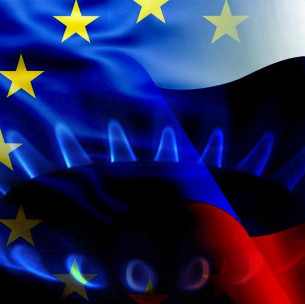Pentagon chief Robert Gates has offered new assurances that U.S.’ plans to base its missile-defense elements in Eastern Europe are by no means aimed against Russia at a recent news briefing. He said the antimissile components the U.S. plans to deploy in Poland and the Czech Republic threaten neither Europe nor Russia.
Just like before, the U.S. defense secretary offered no specific evidence to confirm his statement. When asked why its defense facilities should be deployed in Poland while Iranian missiles’ range won’t stretch farther than the southern part of Turkey, Gates said no one could guarantee that Iran would halt its missile technology development projects or wouldn’t buy such technologies from other countries. Incidentally, Washington isn’t offering Iran any guarantees that the U.S. won’t strike it soon either.
State Department spokesman Sean McCormack has made a similar pronouncement. "Our efforts to deploy missile defense systems around the world, and in this case we're working very closely with the Czech and the Polish governments to develop a system in Central Europe, is in no way directed at the Russian strategic forces," he said in Washington.
Observers note that both assurances, by Pentagon and by State Department, were given shortly after the famous statement by Russian General Staff head, Yury Baluyevsky, who said Russia could unilaterally withdraw from the Intermediate-Range Nuclear Forces (INF) Treaty of 1987, depending on “how our American partners are going to act.”
As is known, the IMF Treaty is of unlimited duration. However, as Mr. Baluyevsky said, "there is a possibility of leaving the agreement if one of the sides presents convincing evidence. Many countries are developing and perfecting medium range missiles.”
Washington seems somewhat shaken by Gen. Baluyevsky’s statement. It looks like the U.S. didn’t expect President Putin’s Munich vows to take “asymmetrical but effective” measures in response to Washington’s missile-defense effort to be fulfilled so soon.
Robert Gates admitted to the briefing that Russia’s pullout from the INF Treaty would create a problem for the U.S. and its European allies. He also suggested Moscow might be concerned over the growing intermediate-range missile threat, south and east of its borders. Well, he guessed right – Moscow is indeed concerned about everything that is going on close to Russia’s borders, south and east, and west as well.
"We will see how our American partners are going to act," Gen. Baluyevsky added elaborating on Russia’s possible INF withdrawal. "What they are doing at the moment -- creating a third positioning region for anti-missile defense in Europe -- is totally inexplicable."
Meanwhile, our American partners are pressing ahead with their “missile shield,” having presented no sustainable arguments so far. On February 18, Poland’s Defense Minister Alexander Szczyglo said Warsaw will give an answer to the U.S. suggestion of deploying missile defense elements in the Polish territory within two weeks.
The final decision is as good as made, judging by Polish Prime Minister Jaroslaw Kiczynski’s statement made shortly after that: he said his government, his twin brother the president and himself, all support hosting the U.S. antimissile base. It will be there even though two-thirds of Poland’s population object to the deployment of U.S. antimissiles. иканских ракет.
The Polish government, unlike its senior NATO allies, does not even pretend the U.S. base will protect Europe from a potential missile attack by Iran; it will clearly be targeted at Russia, although more in political than in military sense.
As was reported earlier, the Europe-based elements of the U.S. missile defense will require an investment of $1.6 billion in the next five years. A powerful tracking radar will be installed in the Czech Republic over that time, and 10 PAC-3 Patriot anti-missile defense systems especially designed to intercept ballistic missiles and their warheads will be deployed in Poland. Further plans include expanding the European part of the antimissile system and integrating it into the U.S.-created global ‘missile shield.’
From Russia’s perspective, the U.S. argumentation that the air defense facilities in Poland and Czechrep won’t threaten Russia’s interests looks shaky for several reasons.
First, the U.S. made the decision to deploy its antimissile bases on Russia’s doorstep without preliminary consultations with Moscow, presenting it with a fait accompli. Partners do not act this way, because it looks hostile.
Second, the terrifying story of Iran’s possible plans to fire (perhaps in the distant future) ocean-spanning missiles at the United States or intermediate-range missiles at European NATO members sounds highly improbable, according to expert opinions.
Third, the choice of Poland and the Czech Republic as sites to deploy the U.S. ‘missile shield’ elements appears odd: it would be more logical to place them in Turkey, Georgia or Azerbaijan, or Romania at the last resort. Clearly politics dominates over logic here: Warsaw and Prague are America’s most loyal allies in Eastern Europe today, while the Polish government’s policy is almost openly anti-Russian.
Finally, the strongest argument used by the supporters of U.S. plans for Poland and Czechrep is the Patriot missiles’ technical capacities. The Patriots, they argue, can only effectively intercept intermediate-range missiles but cannot hit Russia’s strategic missiles. This is certainly true about Patriot PAC-3s. But who would guarantee (remember Mr. Gates’s question?) that more advanced missile systems won’t appear in Poland in the future?
The conclusion is that Russia can hardly be satisfied by U.S. officials’ empty statements about the purpose of expanding the U.S. missile defense system to Eastern Europe. Washington will have to put a little more effort into persuading Moscow that the U.S. plans do not threaten its security.









